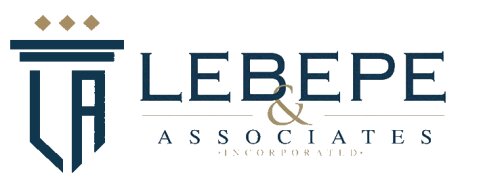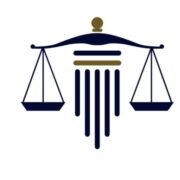Best Public-Private Partnerships (PPP) Lawyers in Polokwane
Share your needs with us, get contacted by law firms.
Free. Takes 2 min.
List of the best lawyers in Polokwane, South Africa
About Public-Private Partnerships (PPP) Law in Polokwane, South Africa
Public-Private Partnerships (PPP) are collaborative agreements between government entities and private sector companies to deliver public services or infrastructure projects. In Polokwane, South Africa, PPPs have become a popular approach for implementing large scale and complex projects such as the development of roads, water supply systems, healthcare infrastructure, and urban regeneration. The main goal of PPPs is to leverage private sector expertise, efficiency, and investment capacity to improve service delivery, while allowing government authorities to focus on regulation and oversight.
Public entities at the municipal, provincial, or national level may enter into PPP agreements with private companies, following stringent procedures and legal requirements. In Polokwane, this is often subject to both local and national legal frameworks, ensuring public interest is protected and value for money is achieved for the community.
Why You May Need a Lawyer
Engaging in a Public-Private Partnership in Polokwane involves complex regulatory, contractual, and operational considerations. Here are common scenarios when legal advice can be essential:
- Structuring a PPP project and drafting contracts
- Navigating government tender and procurement processes
- Ensuring compliance with both local (municipal) and national laws
- Negotiating risk-sharing and financial models between public and private partners
- Resolving disputes that arise during the PPP life cycle
- Adhering to environmental, labour, and social responsibility regulations
- Dealing with land use, permitting, or development approvals
- Assessing tax implications and financing arrangements
- Protecting intellectual property and proprietary technology involved in a PPP
- Modifications or early terminations of existing PPP contracts
In all these situations, a lawyer with experience in PPP law can provide guidance to ensure rights are protected and obligations are clearly understood.
Local Laws Overview
The legal landscape for PPPs in Polokwane is shaped by several national and local statutes, regulatory frameworks, and guidelines. Key legal instruments include:
- Municipal Finance Management Act (MFMA) - Governs the manner in which municipalities, such as Polokwane Local Municipality, manage finances and enter into PPP agreements. The MFMA outlines approval processes, competitive bidding requirements, and public consultation obligations.
- Public Finance Management Act (PFMA) - Applies to PPPs at the provincial and national level, setting out reporting obligations, feasibility studies, and value for money assessments.
- Public-Private Partnership Manual and Treasury Regulations - Detailed procedures for identifying, planning, and managing PPP projects are contained in these guidelines, issued by the National Treasury.
- Local Government: Municipal Systems Act - Focuses on transparency, accountability, and public participation in municipal projects, including PPPs.
- Environmental and land use laws - Regulations such as the National Environmental Management Act (NEMA) and local employment equity requirements also impact PPP project implementation in Polokwane.
Entities wishing to enter a PPP must undergo a stringent procurement and contract management process, which includes a feasibility study, public consultation process, and approval from relevant authorities. Attention to due diligence and compliance with all local laws is crucial for the success of any PPP undertaking.
Frequently Asked Questions
What is a Public-Private Partnership (PPP)?
A PPP is a contractual arrangement between a public sector entity and a private company to deliver infrastructure or public services, sharing risks and rewards in line with their respective contributions.
Who regulates PPPs in Polokwane?
At the municipal level, the Polokwane Local Municipality, under the guidance of the Municipal Finance Management Act, oversees local PPPs. National Treasury plays a key oversight role, especially regarding significant projects.
What types of projects can be developed through PPPs?
Common PPP projects include public transport systems, water and sanitation infrastructure, health facilities, schools, administrative buildings, and urban renewal initiatives.
How are PPP contracts awarded in Polokwane?
PPP contracts must be awarded through a transparent, competitive bidding process, following strict procurement guidelines set by the municipal and national authorities.
What risks are involved in PPP projects?
Risks can include financial, legal, construction, operational, and demand risks. Proper risk allocation and management are essential and usually detailed in the PPP contract.
How long does it take to set up a PPP project?
The time frame can vary greatly depending on project size and complexity. Initial planning, feasibility studies, bidding, and negotiations can take several months to a few years.
Can foreign companies participate in PPPs in Polokwane?
Yes, foreign entities can participate, provided they meet local procurement requirements and comply with all relevant South African laws and regulations.
How is community input incorporated into PPP projects?
Public participation is a legal requirement. Communities must be consulted, and their feedback considered during the planning and approval stages of significant PPP projects.
What legal recourse is available if a dispute arises in a PPP?
Dispute resolution mechanisms are typically outlined in the PPP contract, often including negotiation, mediation, arbitration, or litigation in South African courts.
Is government support available for PPP initiatives?
The South African government provides technical support, capacity building, and financing tools for qualifying PPP projects, mainly through the National Treasury's PPP Unit.
Additional Resources
For further assistance and information on PPPs in Polokwane, consider reaching out to these resources:
- National Treasury PPP Unit - Offers policy guidelines, project support, and training resources
- Polokwane Local Municipality - The primary authority for municipal PPPs and local procurement
- Limpopo Provincial Government - For provincially significant PPP projects
- Department of Trade, Industry and Competition (DTIC) - Advice on investment and partnership opportunities
- Law Society of South Africa - Assistance in finding qualified legal professionals experienced in PPP law
Next Steps
If you are considering engaging in a Public-Private Partnership in Polokwane or if you need help with a current PPP project, it is advisable to consult a legal professional with expertise in PPP law and local regulations. They can assist with legal due diligence, contract drafting, risk assessment, and ensuring compliance with all statutory obligations. Start by:
- Identifying and listing your specific needs and objectives for the PPP
- Gathering all relevant documentation and project information
- Contacting law firms or legal advisors with experience in PPP work
- Arranging consultations to discuss your case and options
- Working closely with your selected legal professional to navigate regulatory, procurement, and project implementation processes
Legal support is crucial in successfully navigating the complexities of Public-Private Partnerships in Polokwane, ensuring that your interests are protected and the project delivers maximum benefit to all stakeholders involved.
Lawzana helps you find the best lawyers and law firms in Polokwane through a curated and pre-screened list of qualified legal professionals. Our platform offers rankings and detailed profiles of attorneys and law firms, allowing you to compare based on practice areas, including Public-Private Partnerships (PPP), experience, and client feedback.
Each profile includes a description of the firm's areas of practice, client reviews, team members and partners, year of establishment, spoken languages, office locations, contact information, social media presence, and any published articles or resources. Most firms on our platform speak English and are experienced in both local and international legal matters.
Get a quote from top-rated law firms in Polokwane, South Africa — quickly, securely, and without unnecessary hassle.
Disclaimer:
The information provided on this page is for general informational purposes only and does not constitute legal advice. While we strive to ensure the accuracy and relevance of the content, legal information may change over time, and interpretations of the law can vary. You should always consult with a qualified legal professional for advice specific to your situation.
We disclaim all liability for actions taken or not taken based on the content of this page. If you believe any information is incorrect or outdated, please contact us, and we will review and update it where appropriate.











